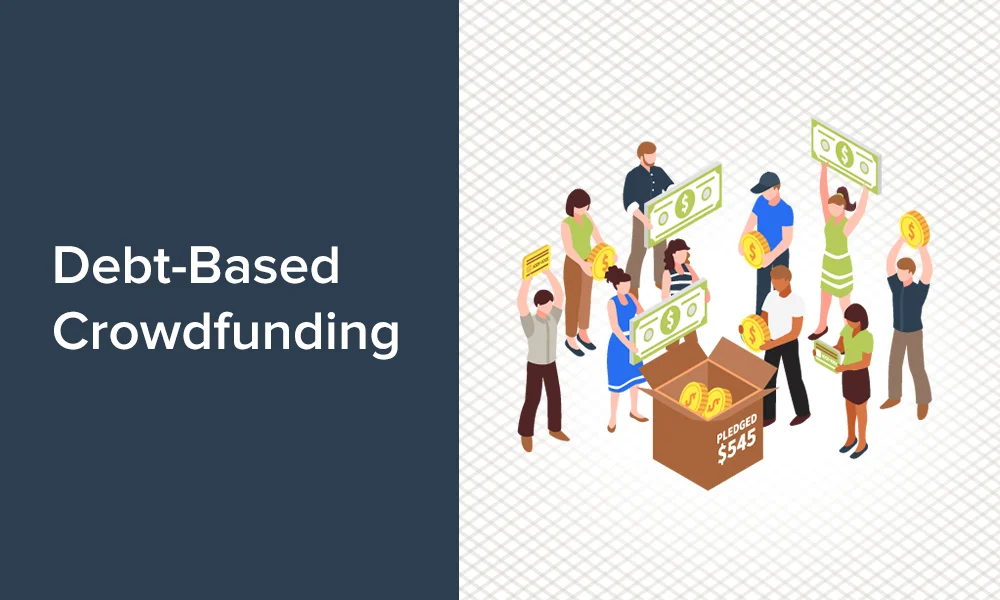In recent events, the Norwegian Ministry of Finance has implemented a new regulation in the debt-based crowdfunding arena. With the implementation of this new regulation, the Ministry of Finance has put a lid on the uncertainty related to the lender’s activity authorization on debt-based crowdfunding platforms.
What is Debt-based crowdfunding?
The debt-based crowdfunding has gained attention in recent times. In this model of crowdfunding, borrower requests for loans from lenders in exchange of interest. Also known as ‘crowd-lending,’ debt-based lending has become the savior for start-ups as these platforms offer loan at competitive and low-interest rates.
In any debt-based crowdfunding platform, there are three participants namely:
a) A crowdfunding platform where lenders and borrowers meet;
b) Borrower (the person/company seeking to borrow money);
c) Lender (crowd looking forward to investing money).
The new regulation only talks about the ‘lender,’ the third participant on the platform.
New regulation in Debt-based Crowdfunding
Lending on these debt-based platforms falls under the label of financial activity, and it requires an authorization under the section 2-1 of the Financial Entities Act. The act offers an exemption to isolated instances of financing. So far, there has been an uncertainty whether or not this exemption applies to lenders on the crowdfunding-platforms.
To clear this uncertainty, the Ministry of Finance has implemented a new exemption in section 2-18 of the Financial Entities Regulation of 9 December 2016 no. 1502. Under this exemption, the activity of lending up to 1 million NOK on crowdfunding platforms by individual lenders or company will not fall under the category of financial activity. This new rule is slated to come into effect from the 1st of June, 2019.
Though the Norwegian Financial Market is welcoming the clarification and exemption from the Ministry of Finance, it is going to be difficult for them to control the lenders on the different crowdfunding platform to just 1 million NOK per year.
The Current Scenario
As of now, the crowdfunding platform operator qualifies as a loan intermediary and doesn’t need any authorization. The platform operator needs to register with the Norwegian Financial Supervisory Authority according to section 2-18 of the Financial Entities Act of 10 April 2015 no. 17.
In case, the operator also participates in the financial activities on the platform, and they need to get authorization to work as a bank or financial company according to section 2-7 or 2-9 of the Act (mentioned above).
Earlier this March, the European Parliament implemented new regulation which imposes specific authorization requirements on crowdfunding platforms. The new regulation states that both debt-based and equity-based crowdfunding platforms need to offer finance to companies only. Moreover, there is a limit set to EUR 8 million per company in a given financial year.
The member states of the European Council are not happy with this regulation. Moreover, it is expected that post-EU- elections in May, the European Parliament’s proposal is going to be subjected to the trilog negotiations between the Parliament, The European Council and the European Commission.
Going Forward
According to the original proposal of the Ministry of Finance, the exemption was limited to companies only. However, when they consulted the Norwegian Crowdfunding Association and other members of the financial market over the matter, it was decided that the new act should include private individuals.
The Finance Ministry, however, do believes that specific authorization requirements should apply to debt-based crowdfunding platform providers. As a result, they have called for public consultation on the authorization requirements whose response deadline is 1 September 2019.
Akeo Lending
Akeo Lending is a modular P2P lending framework essentially containing all the features which a FinTech looks for while building a lending platform. However, we all know that the lending market is forever changing, like this new regulation introduced in the debt-based crowdfunding.
To keep up with the market changes, Akeo Lending comes with modular back-and-front-end architecture that offers businesses a pedestal to build customized P2P lending platform quickly.




